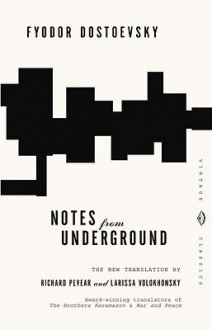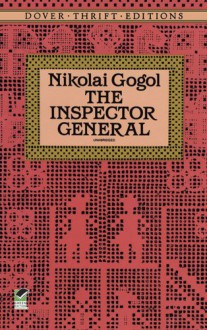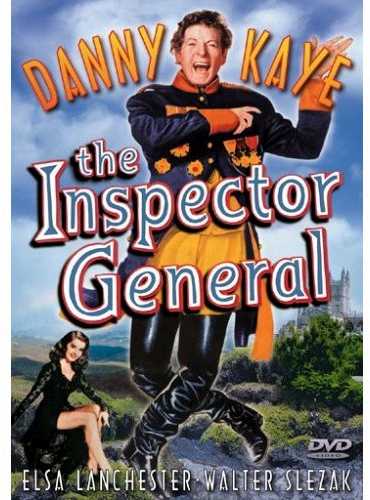
Honestly, I'm not really all that sure where to start with this story. I noticed that when I read it before I made a comment on how it can be pretty difficult to follow, but that is understandable considering it is written from the point of view of a man (which doesn't have a name by the way) looking back on his life and trying to understand the nature of existence – whether our fate is decided by us or whether we are masters of our own fate. Well, not really, though there are a number of elements in the story that explore the clash between determinism and existentialism, however the strong theme in my mind seems to be that while humanity desires a world in which there is no pain, for some reason they are not willing to make the steps necessarily to reach that world – in a sense humanity is addicted to suffering.
I have to admit that the narrator as a character isn't all that flattering. In fact I get the impression that he would fall into the category known as a 'homeless bum' (as well as the term an unreliable narrator). However, I feel a little uncomfortable using that term because it has the connotation of painting the homeless as being lazy, alcoholic, and basically responsible for the situation in which they have found themselves when in reality there are a lot of conflicting issues that drive them to that point. The interesting thing is that when we think of a 'homeless bum' we usually conjure up images of elderly people, usually always men, who are incredibly unkept, always drinking wine out of flasks (which in Australia is referred to as goon-juice), but ironically never begging. What is interesting is that we also tend to paint them with the image of being uneducated, and in a way illiterate because how could somebody who is educated willingly land up in such a situation.
I'm not really sure if this is the image that Dostoevsky is trying to instil into our mind, but then I come from the school of thought that suggests that a novel will take on its own meaning as time moves on. For instance Gulliver's Travels began as a writing of political satire which has morphed into a children's tale. While the nature of Notes from the Underground hasn't changed to that extent the nature of the narrator has, namely because the inference is that he is writing about his past, and about his existence, from the Underground. However, our immediate understanding of The Underground either has a political, or criminal, connotation. However my understanding is that the underground in which the narrator inhabits is neither political nor criminal, but rather outside of the social norm. In a sense our narrator, having realised that he is unable to exist in society, retreats from society and spends the rest of his life there.
The story is divided into two parts, with the first simply seeming to be a lot of incoherent ramblings, but in fact is the narrator attempting to understand the nature of the human condition. The second half is a story, or a thought experiment, were he looks back onto his past to a point in time that could be considered the turning point in his life. Here he meets up with some friends and immediately has an argument with them, and they leave him because, well, they have better things to do than argue with an irrational man – like going to a brothel. However he follows them but when he arrives at the brothel he discovers that they have already retired to their rooms, so instead he decides to spend some time with a prostitute named Liza.
This is where it gets pretty deep, or at least for Liza, namely because the narrator pretty much exposes the reality of the situation that she faces – she is young and has a commodity that she is able to sell, but there will come a time when that commodity will no longer have any real value, and she will find herself discarded on the proverbial trash heap. However, the narrator isn't some superhero that flies into the brothel to save Liza because when Liza tracks him down afterwards he basically tells her than he doesn't want anything to do with her and to get lost. He then has second thoughts but it is too late, and the book then ends.
This thought experiment, particularly the statements regarding prostitution, do bring about a reality of the profession. These days it is legal in a number of western countries, but legalisation of prostitution doesn't clean up the profession, it just exposes it to people that would not necessarily have gone down that road (and drives the illegal aspects much further underground, as well as opening up the truly desperate to much more violence than before legalisation). For instance, when it is a criminal offence, there are people that are unlikely to become prostitutes, however by legalising the profession it opens up another opportunity and they decide to take it up on that offer, only to discover that they have been tarred with the label of being a 'filthy prostitute' by the so called respectable members of society (who probably spend a fair amount of time in brothels themselves). I have spoken to a lot of people who have tried to defend the profession in that it is a legitimate business since if somebody loves sex why not work in a profession where they can have lots of sex. Well, that is all well and good, but the point isn't that they need to convince me because I work on the principle that if that is what they want to do then who am I to stop them, but rather that society still has a view on prostitutes, and unfortunately that view isn't all that nice. Further, there is also the question of the objectification of women, and the fact that it is really a profession that has have a limited shelf life because no matter how enlightened we are (or claim to be), when we go onto the dating sites we always look at the photos first and then go onto the description (if we even read it).
Let us then take this idea of suffering – this isn't the idea of if there is an all powerful and good God then why do we suffer, namely because Dostoevsky explores that in The Brothers Karamazov. Instead this is the idea that the main reason we do not move towards a utopia is because we, as humans, has this innate desire to suffer. It is like the idea that the hunt is actually more enjoyable than the kill, or the movie is more enjoyable than the ending. In a way we have this desire for a utopia without suffering, and while we want to get there, we drag our feet because there is something in us that wants to suffer, as if to be in pain actually gives us an identity. This isn't the concept that bad things happen because bad people make them happen, this is where we see an answer to the problem and then turn around and walk away because once we have found that answer the problem has been solved, and in a sense a part of us has now died.
This seems to have something to do with how the narrator fights with his friends, and also how he fights with Liza when she arrives at his apartment. In a sense, in speaking with Liza, he is not only offering her a way out, but he is also offering a way out for himself, yet in the intermediate time he begins to have second thoughts. In a sense it seems as if that empty part of him may be fulfilled, and to have that empty part filled, he ceases to be who he is, which is why he then proceeds to reject Liza. However, after she has left, he realises that the empty space is still there, and he wants it to be filled, and returns to his quest to fill it, only to discover that the opportunity has been lost, and has been lost forever. In a sense it is like the person who hates their job, but never does anything to change that position because of the belief of having any job is better than having no job, when in the end having a good job is much, much better than having a bad job. Still, the belief, in the end, is that there is no such thing as a good job so I might as well stick with this bad job than running the risk to getting a job that is even worse.
Finally, let us consider the nature of existentialism verses determinism. It was around this time that writers began to question the idea that we have a set place in the world that was determined by a higher power before we were born. Liza is a prostitute because it was decreed by God before time began that she would be a prostitute, and if she didn't like that then bully for her. However, existentialism effectively tells us not to blame God for what is in effect our life choices, which is why Liza decides to make the decision to leave the life of the prostitute and to strike off into a brave new world. This is the essence and that is the realisation that we have the ability to make a decision. In a sense it is that decision that we can make that moves us toward the utopia, though as Liza inadvertently discovered, while she has the power to make the decision, it does not necessarily mean that the decision is going to be plain sailing, or that she can easily cast off the shackles of her past.

 Log in with Facebook
Log in with Facebook 











